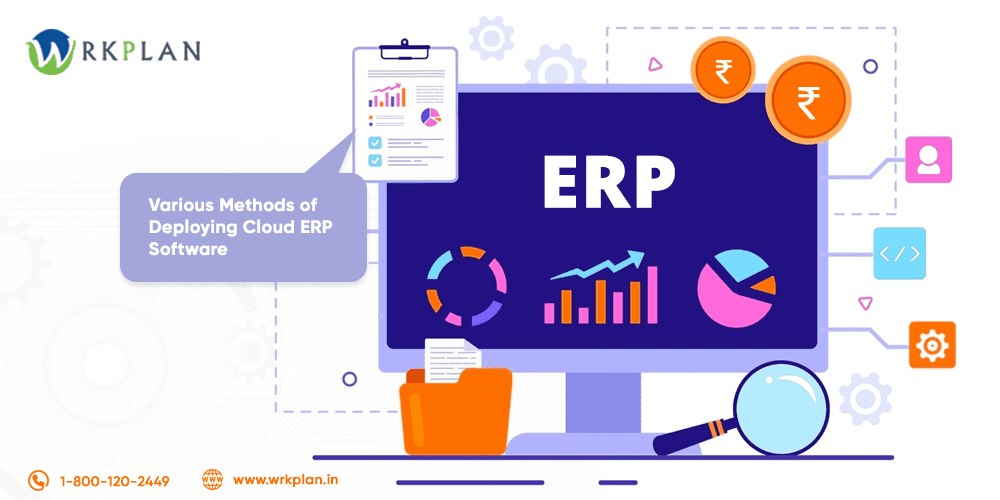Introduction
Cloud ERP software has transformed how businesses operate, offering flexibility, scalability, and advanced features for managing critical processes like accounting, inventory, HR, and manufacturing. WrkPlan, a leading provider of cloud-based ERP software in India, delivers solutions designed to adapt to the diverse needs of modern businesses.
What is Cloud ERP?
Cloud ERP is a software solution hosted on the internet, allowing businesses to access and manage operations from anywhere. Unlike on-premise ERP, cloud ERP eliminates the need for costly hardware while providing real-time insights and seamless integration across departments.
WrkPlan’s cloud ERP system in India offers key modules such as GST-compliant accounting, inventory management, payroll, and manufacturing—all accessible via a secure and user-friendly platform.
Why Choose Cloud ERP?
- Cost Efficiency: Lower IT infrastructure costs with WrkPlan’s scalable, cloud-based solutions.
- Enhanced Security: Advanced encryption ensures your data remains secure, reducing risks associated with breaches.
- Future-Ready Features: Stay ahead with AI-driven analytics, automated updates, and real-time reporting.
- Remote Accessibility: Manage your business from any location with internet-connected devices.
- Custom Modules: WrkPlan’s customizable ERP software supports specific business needs, such as multi-branch accounting and manufacturing optimization.
Cloud ERP Deployment Methods
Hosted Cloud ERP:
– What It Is: Businesses own the software, but it is hosted by a third party.
– Advantages: Lower upfront hardware costs and vendor-managed backups.Private Cloud ERP:
– What It Is: A dedicated environment exclusive to one customer.
– Advantages: Enhanced control and security; supports legacy systems.
– Best For: Businesses requiring custom features or high data privacy.Public Cloud ERP:
– What It Is: Shared infrastructure with multiple businesses.
– Advantages: Cost-effective, vendor-managed upgrades and maintenance.
– Best For: Small to medium businesses seeking affordability and efficiency.Single-Tenant ERP:
– What It Is: A dedicated database for each customer.
– Advantages: High data isolation and advanced customization options.Multi-Tenant ERP:
– What It Is: Shared infrastructure where data is securely isolated.
– Advantages: Cost-effective, quick scalability, and resource efficiency.
Why WrkPlan for Cloud ERP?
WrkPlan provides tailored deployment options with advanced technical capabilities, ensuring seamless integration and implementation.
- Scalable Solutions: Flexible models to support growing businesses.
- Comprehensive Modules: GST compliance, inventory, HR, payroll, and manufacturing.
- End-to-End Support: From implementation to post-deployment training.
- Enhanced Security: Industry-standard encryption and compliance measures.
Conclusion
Choosing the right cloud ERP software in India and deployment model is critical for modern businesses. WrkPlan’s innovative solutions ensure secure, scalable, and efficient operations tailored to your unique needs.
Discover how WrkPlan can streamline your business processes. Visit WrkPlan or call 1-800-120-2449 for a demo today!

